NC Engineer Board Defense Attorney
North Carolina Engineering License Defense Attorney
When a complaint is filed against your professional engineering license, your reputation, livelihood, and future are on the line. Brooks Peterson PLLC defends engineers throughout North Carolina facing investigation or disciplinary action by the North Carolina Board of Examiners for Engineers and Surveyors (NCBELS).
Understanding NCBELS and Its Authority
The NCBELS enforces Chapter 89C of the North Carolina General Statutes, known as the Engineering and Land Surveying Act. This law empowers the Board to investigate allegations of fraud, deceit, gross negligence, incompetence, or misconduct by licensed engineers and firms. The Board’s mission is to safeguard life, health, and property by regulating the practice of engineering in the public interest.
While the Board oversees both engineers and land surveyors, each profession is evaluated separately when complaints arise.
The NCBELS Complaint Process
When a complaint is filed, the process can be lengthy and complex. Understanding each phase can help you protect your rights and prepare your defense.
1. Filing a Complaint
Any individual can submit a written or electronic complaint to NCBELS. The complaint must include enough evidence to support the allegations, and anonymous complaints are not accepted under state law (G.S. 89C-22).
2. Investigation and Review
If the Board determines that a complaint warrants review, it assigns an investigator to gather evidence and interview relevant parties. Investigations are confidential unless the Board issues a formal citation.
3. Review Committee Evaluation
A review committee — typically consisting of the Executive Director, Board Counsel, and a licensed professional engineer — evaluates the evidence. If the committee believes a violation occurred, it may issue a Notice of Contemplated Action to the engineer.
4. Settlement or Hearing
Before a formal hearing, a settlement conference may be offered. If no agreement is reached, the matter proceeds to a Board hearing, where the engineer, and their retained lawyer, can present evidence, cross-examine witnesses, and defend their professional conduct.
5. Possible Outcomes
If the Board finds a violation, it may impose one or more sanctions, including:
Reprimand or censure
Suspension or revocation of license
Refusal to renew or reinstate a license
Fines of up to $5,000 per violation; and/or
Additional education or supervision requirements
Cases closed without citation remain confidential. But cases that result in disciplinary action become public record in the Board’s Disciplinary Database.
Timelines and Confidentiality
Most investigations conclude within six months, though complex cases or those involving hearings can extend for a year or more. If an engineer appeals the Board’s decision to Superior Court, resolution can take even longer.
All investigations remain confidential until a formal action is issued. This confidentiality is critical — but it can also make it difficult to navigate the process without experienced counsel.
Frequently Asked Questions
Are complaints anonymous?
No. State law requires written or electronic complaints with identifying information.
Will the investigation be public?
Not initially. Investigations remain confidential unless the Board issues a formal citation.
Can the Board resolve contract or boundary disputes?
No. Those issues must be handled in court.
How long will my case take?
Simple investigations may close within six months; hearings or appeals can extend a year or more.
What should I do if I receive a Notice of Contemplated Action?
Contact an experienced license defense attorney immediately before responding.
Common Reasons for Complaints Against Engineers
The Board investigates a wide range of issues involving professional engineers and firms, including:
Negligence or incompetence in design, supervision, or technical work
Ethical misconduct, such as conflicts of interest or misrepresentation
Improper use of professional seals or titles
Unlicensed practice or offering services without authorization
Failure to comply with Board rules or continuing education requirements
Criminal convictions that reflect on moral character or professional fitness
The Board does not handle civil disputes such as contract issues or boundary disagreements — those matters belong in civil court.
Why You Need a North Carolina License Defense Attorney
Responding to an NCBELS complaint requires more than technical expertise — it requires an understanding of administrative law and Board procedures. Even a seemingly minor issue can escalate into a formal hearing that threatens your career.
At Brooks Peterson PLLC, we:
Handle all communication with NCBELS investigators and counsel
Develop legal strategies tailored to the specific allegations
Represent engineers during interviews, settlement discussions, and hearings
Work to protect your license, reputation, and livelihood
Early intervention often makes the greatest difference. The sooner you involve an attorney, the more opportunities there are to resolve the matter before formal charges or public action occur.
Protecting Your Engineering License
Your professional engineering license represents years of education, experience, and responsibility. If your license is at risk, having legal representation can mean the difference between protecting your career or losing it.
Brooks Peterson PLLC defends engineers across North Carolina before NCBELS. Whether you’re facing an initial investigation or a pending hearing, we can guide you through every stage of the process with the discretion and skill your situation demands.
Appealing a Board Decision
If you disagree with the NC Board of Examiners for Engineers and Surverors’ final decision, you have the right to appeal within 30 days to the Superior Court in your county or in Wake County (where the Board is located).
Our firm assists with:
Reviewing the administrative record for appealable issues
Drafting the written notice of appeal
Preparing court filings and arguments for review
Appeals are time-sensitive — missing the 30-day deadline can forfeit your right to challenge the Board’s decision.




